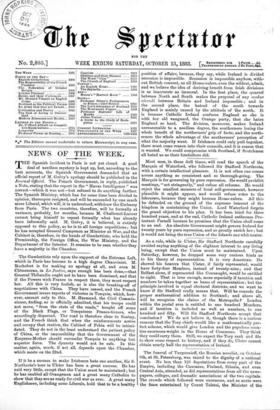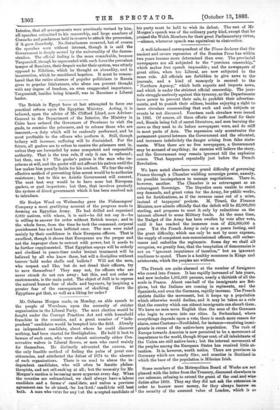The funeral of Turguenieff, the Russian novelist, on October 9th,
at St. Petersburg, was raised to the dignity of a national event. No less than 126 deputations from every part of the Empire, including the Caucasus, Finland, Siberia, and even Central Asia, attended, as did representatives from all the news- papers, colleges, and dramatic associations of the two capitals. The crowds which followed were enormous, and so acute were the fears entertained by Count Tolstoi, the Minister of the
Interior, that all arrangements were previously revised by him, all speeches submitted to his censorship, and large numbers of Cossacks and gendarmes held in reserve to attack the procession, if it grew disorderly. No disturbances occurred, but of course the speeches were without interest, though it is said the Government is deeply moved by the universality of the demon- stration. The official feeling is the more remarkable, because Turguenieff, though he represented with such force the prevalent temper of Russians, their despair under their system, was utterly opposed to Nihilism, which he thought an absurdity, and to insurrection, which he considered hopeless. It must be remem- bered that the entire absence of popular politicians in Russia gives to popular litte'rateurs, who alone can present thought with any degree of freedom, an even exaggerated importance. Turguenieff, besides being himself, was to Russians a Liberal leader.



































 Previous page
Previous page